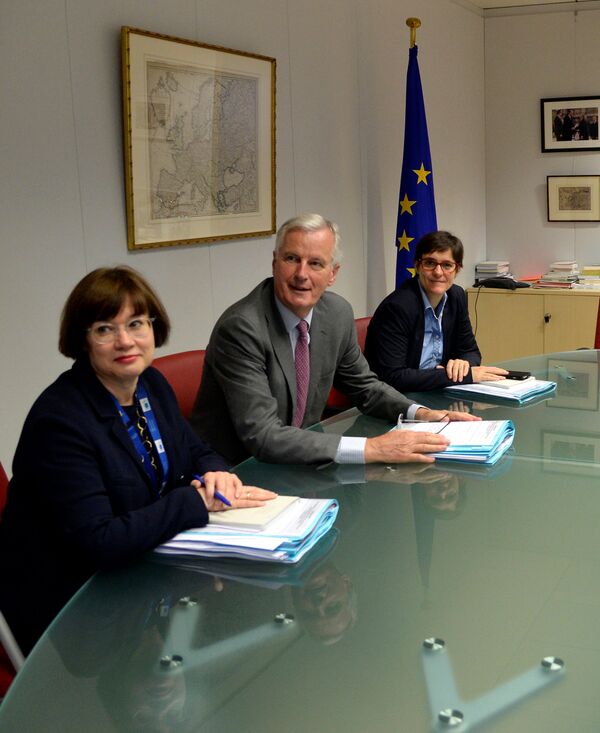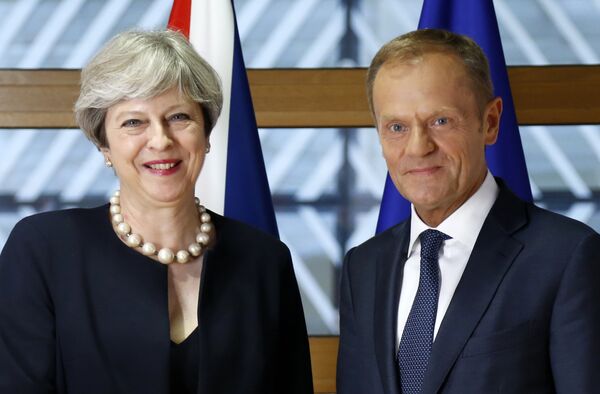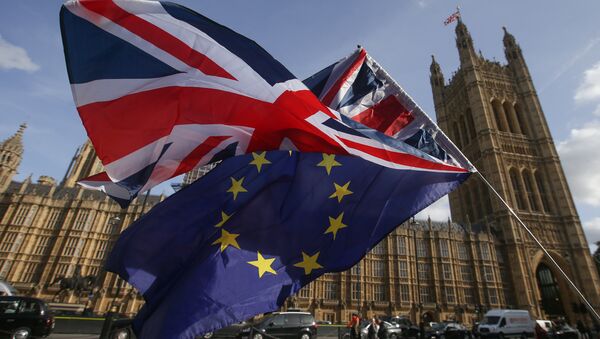Wrangling between the UK and EU over the "divorce bill" that London has to pay in order to reach a trade agreement with Brussels has reached a head, with the EU demanding that the UK put a figure on its obligations within the next two weeks.
The issue of the divorce bill is a "thorn in the side for the British government" Dr. Roslyn Fuller, Director of the Dublin-based Solonian Democracy Institute, author of "Beasts and Gods: How Democracy Changed Its Meaning and Lost Its Purpose," told Radio Sputnik.
"The leave vote was sold, to a certain extent, on the idea that Britain would stop paying a lot of money to the EU and that they were spending an inordinate amount of money on the EU that could be used for British social programs."
After the sixth round of Brexit talks last week, the EU's chief negotiator Michel Barnier said the UK needs to be firmer on its remaining financial commitments to the EU after Brexit.
At a joint press conference on Friday, Barnier was asked about reports that senior EU officials are giving the UK a two-week deadline to give a number with regard to the so-called "divorce bill" from the EU, which could run to tens of billions of euros.
"My answer is yes," Barnier responded, and also repeatedly demanded "real and sincere progress" in the talks.

Fuller predicted that the UK will have to bow to the EU's demands for more money, if it is to reach a beneficial agreement on trade.
"The question is, what kind of relationship do you want to have with the EU in the future? Will you agree, for example, to acknowledge obligations to continue paying for certain programs or to honor obligations that Britain entered into before the Brexit vote happened."
"Those are the things that are coming to the fore and the EU is basically saying that 'if you don't honor some of those previous commitments, then we might be looking at a harder Brexit as well, and we might not want to have such a great trade relationship with you in the future, either,'" she told Sputnik.
UK Prime Minister Theresa May has already offered Brussels a €20 billion ($23.3 billion) settlement. This would honor Britain's contributions to EU's €143 billion ($166.8 billion) budget for the period 2014-2020.

"The problem is that there was not really a plan made for these kinds of withdrawals, so no-one really knows how it would play out. It was something that up until a couple of years ago, was a theoretical, academic debate and what it basically just comes down is, 'who has what the other side wants?'"
Fuller said that from the UK's point of view, the negotiations depend on what the UK Conservative Party and its supporters want, "what their donors want, what each side wants that their opponent wants to get a hold of."


